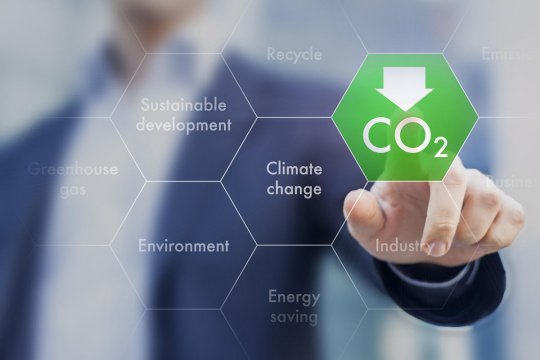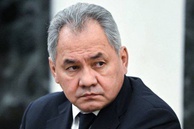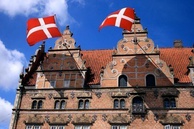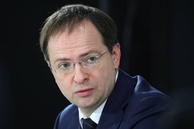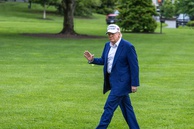The Russia-EU Climate Conference was held in Moscow earlier this month in an online format. During the three-day event, leading Russian and foreign stakeholders discussed climate policy, further implementation of the Paris Agreement in Russia and the EU, corporate strategies for reducing carbon emissions, border carbon regulation mechanisms, and identified areas of mutual interest and potential joint activities between the EU and Russia on climate-related issues.
The December 1-3 conference was organized with the financial support of the European Union Partnership Instrument and the German Federal Ministry for the Environment, Nature Conservation and Nuclear Safety (BMU) within the framework of the International Climate Initiative (ICI).
Russia joined the Paris Agreement in 2019. On November 4, 2020, President Vladimir Putin signed the decree "On the reduction of greenhouse gas emissions" designed to bring down by 2030 the volume of such emissions to 70 percent of the 1990 level. Also in the pipeline are several important climate-related events, including the development of the “Strategy for low-carbon development of Russia until 2050,” and new legislation on greenhouse gas emissions. The European Union, in turn, has committed to completely phase out fossil fuels by 2050 and is now eyeing even more ambitious targets for ensuring a 55 percent drop in greenhouse gas emissions by 2030. As the EU Ambassador to Russia Markus Ederer noted, the current situation makes it absolutely imperative for all international players to exchange their experience and views on the global climate threat. The Russia-EU Climate Conference is the first such major event on climate change organized by the European Union outside its borders. Markus Ederer said the conference reflected the importance that the Brussels attaches to Russia as a partner in the fight against climate change.
“The EU and Russia are the largest partners in the export and import of energy resources, so the de-carbonization measures will impact our economic ties. We are now standing at a crossroads in our energy relations and our relations in general. We need to speak to each other to resolve all our differences and overcome our fear of change. We have to be ambitious not only because of the threat of climate change, but also because of the particular importance of this issue to relations between the European Union and Russia,” Ederer explained.
Frans Timmermans, Executive Vice-President of the European Commission in charge of the European Green Deal, sees climate change as a major challenge of our time. According to him, the rise in temperature is already leading to catastrophic consequences. For example, the Laptev Sea did not freeze in November as it always did before, and the number of forest fires has increased.
“It is clear that if the temperature keeps rising, we will reach the point of no return and will not be able to control the effect. The stated goal of the Paris Agreement is to prevent the global average annual temperature from exceeding 2 degrees Celsius from pre-industrial levels by 2100, and make every effort possible to keep global warming within 1.5 degrees Celsius (the current average is 0.75° C - above the average annual levels of 1850-1900, A. Ye.) This is what the Green Deal is dedicated to,” Timmermans noted.
European Commission experts believe that in order to meet the targets set by the Paris Agreement the EU countries need to become carbon-neutral by 2050. Last year, the EC devised a plan to incrementally achieve this target. According to the plan, emissions were supposed to be down by 40 percent before 2030, but recent calculations show that this is not enough, since by 2050 the amount of emissions will be down by only 60 percent. Therefore, it was decided that by 2030, the interim targets will be raised by 55 percent. According to Frans Timmermans, doing this will be hard, but possible.
“We needed to enlist the support of the population and ensure the fairness of the climate transition. To do this, we began to combine long-term goals and short-term objectives,” he explained.
One such short-term goal is the introduction of cross-border carbon regulation. Presently, many in Russia are wary of a green economy, and see the introduction of a carbon tax as “green protectionism.”
“I fully understand these concerns. Everyone is afraid of this. We should avoid doing anything that would smack of protectionism by any country. If the commitments made under the Paris Agreement are accepted and concrete steps contributing to the implementation of these commitments are taken, then the EU will have no need to introduce these cross-border measures at all. However, if we take urgent action, and external players don’t, then we risk having carbon leakage (transfer of production to countries and regions that are less strict about emissions in order to keep production costs down, A. Ye.) and increased competition,” Timmermans argued. He underscored the importance of a transition to “green” energy to EU-Russia relations.
“We need to realize that fossil fuels have no future. Our goal is to make sure that the countries that still depend on it have the opportunity to transform their economies. The future of the European Union and Russia is very closely intertwined here as the problems affect both of us. Therefore, it is imperative to find positive dynamics in both the import and export of energy resources.”
Many countries have followed the EU's example: China has announced plans to go carbon-neutral by 2060. Japan’s Prime Minister Yoshihide Suga said that the country will also bring its carbon dioxide (CO2) emissions down to zero by 2050. After Japan, South Korea too promised to achieve carbon neutrality. It is also gratifying to know that the new administration of Joseph Biden plans to bring the United States back to the Paris Agreement.
“All countries together must prepare well for the conference in Glasgow, and we would very much like to intensify cooperation with Russia so that together we can convince the world of the seriousness of the threat posed by global warming,” Frans Timmermans concluded.
Ruslan Edelgeriyev, Special Envoy of the President of Russia for Climate Affairs, noted that climate-related transitions in Russia and in other countries should be smooth, parallel and mutually beneficial, because barriers and containment of some countries will only lead to conflicts, and this is definitely not what Paris Agreement is striving for.
“It is with a great deal of concern that we are watching the introduction of cross-border carbon regulation against individual exporting states. At its initial stage, this may negatively affect Russia. That’s why we need to harmonize our actions beforehand, because if we don’t, we will not be able to achieve our declared goal of a global reduction in emissions,” Edelgeriyev emphasized.
He described the European Green Deal as a very ambitious project for restructuring the EU economy, but added that climate change is a common problem that cannot be solved alone. All actions must comply with the WTO and Paris Agreement standards.
“We must avoid economic decline; our goal is to ensure economic growth in every country, therefore our joint actions with the European Union should only have a positive effect on the economy,” Ruslan Edelgeriyev stressed.
Clara de la Torre, the European Commissions’ Deputy Director General for Climate Action, noted that the EU has already demonstrated a successful combination of emission reductions, and economic growth. Since 1990, the EU's GDP has grown by 62 percent with the reduction in emissions exceeding 25 percent.
“Some are skeptical about our plans, considering them too ambitious and costly, but it is our generation that has the opportunity to wisely invest in a green economy. Our main task is to adapt to the effects of climate change that are already here. Early next year, the EU plans to come up with a new climate change adaptation program that will help other countries as well,” she said.
Clara de la Torre underscored the European Union’s belief that Russia should set itself more ambitious goals to combat climate change.
“Global warming benefits no one. This is a structural threat to Russia’s economic prosperity. This does not mean that we need to adopt each other's strategies, because each country has its own specifics, its assets, its own starting points, but we are already prepared to work with Russia and help it receive benefits from investing in a climate-neutral future," she said.
“Russia is entirely committed to the goals of the Paris Agreement, but we are also aware of the framework and voluntary nature of this document. It is not specific enough, especially when it comes to the mechanisms for reducing the stated volumes. Much will depend on decisions made at national, European and global levels on the issue of climate restrictions,” Pavel Zavalny, Chairman of the Energy Committee, noted. According to him, Russia currently possesses modern technologies of low-carbon energy generation, including nuclear and hydrogen ones. The Russian government recently approved a roadmap for the development of hydrogen energy until 2024. According to Russia’s energy strategy until 2035, this country plans to export 0.2 million tons of "pure" hydrogen by 2024, and 2 million tons by 2035.
Karsten Sach, Director-General for European and International Climate Policy of the German Federal Ministry for the Environment, Nature Conservation, and Nuclear Safety (BMU), said that Berlin is ready to help Russia create an infrastructure for transporting hydrogen to the European Union. He believes that Nord Stream 2 could be one such route for delivery of hydrogen to Europe.
“It seems to me that in the long haul, more hydrogen feedstock will be supplied via Nord Stream 2. There will be a transitional period, of course,” he said.
Karsten Sach pointed up the European consumers’ and companies’ growing interest in hydrogen, and here he sees great prospects for cooperation between Germany and Russia.
“Russia is the largest energy supplier. And since demand will shift towards hydrogen, it is in the interests of Russia and Germany, as well as the European Union, to create an appropriate infrastructure and support mechanisms for this energy sector,” he added.
Kirill Komarov, director of Rosatom State Atomic Energy Corporation’s development and international business department, specified the advantages of peaceful nuclear energy use. First, the average life-cycle nuclear energy emission is 12 g per kW, which is second only to that of wind generation (11 g per kW). Secondly, this technology can be successfully combined with others in what Rosatom calls "Green Square." The strategy identifies four key low-carbon sources of electricity - hydro and nuclear power are responsible for supplying the base load of power grids, while wind and sun - during peak periods.
“It is our firm belief that nuclear energy and renewable energy sources are not competitors, as they are often presented today, but are complementary components of the low-carbon energy balance. We all know that due to their great dependence on weather, the renewable sources of energy are unable to provide the base load of the grid, but they are efficient suppliers of electricity during overload periods, while the base load is provided by nuclear power and hydroelectricity. The final decision on how to combine these sources depends on each country’s geographical, economic and even social factors, of course,” Komarov explained.
However, while analyzing the indicators not only of Russia and the European Union, but other states as well, we see that, realizing the need for a harmonious energy balance, countries with a huge potential for the development of sources of renewable energy, such as the UAE, Egypt, Saudi Arabia, Uzbekistan and many others, are increasingly investing in the development of nuclear power industry.
“We are fully aware of the global priority of the climate agenda and understand our responsibility for its implementation. We strongly believe that we need nuclear power to meet our set goals, as today it is actually the only source of low-carbon energy, which guarantees uninterrupted generation of electricity regardless of weather or climate conditions," Komarov said. He believes that useful as the European experience, documents and standards may be for Russia as it charters its green course, Moscow still needs to take into account both its regional specifics, available natural resources and, of course, the historical structure of the country's power generation.
“We certainly respect the position of the countries, which, for some reason, decide to abandon nuclear energy, but we still do not fully understand them, given the low cost of nuclear power and minimal damage to the climate. That being said, we believe that our country’s choice here should be respected, including in Brussels. Each country should feel free to choose from the sources of electricity that are available within the Green Square,” Kirill Komarov emphasized.
“Most importantly, we believe that the climate agenda is a long-term strategic avenue of global development and that only by working together and taking into account the specific interests and realities of each country, will we be able to implement this difficult task. We need to find a balanced solution to all sustainable development goals, and not to focus on implementing just one of them,” Kirill Komarov added.
read more in our Telegram-channel https://t.me/The_International_Affairs

 11:21 10.12.2020 •
11:21 10.12.2020 •
